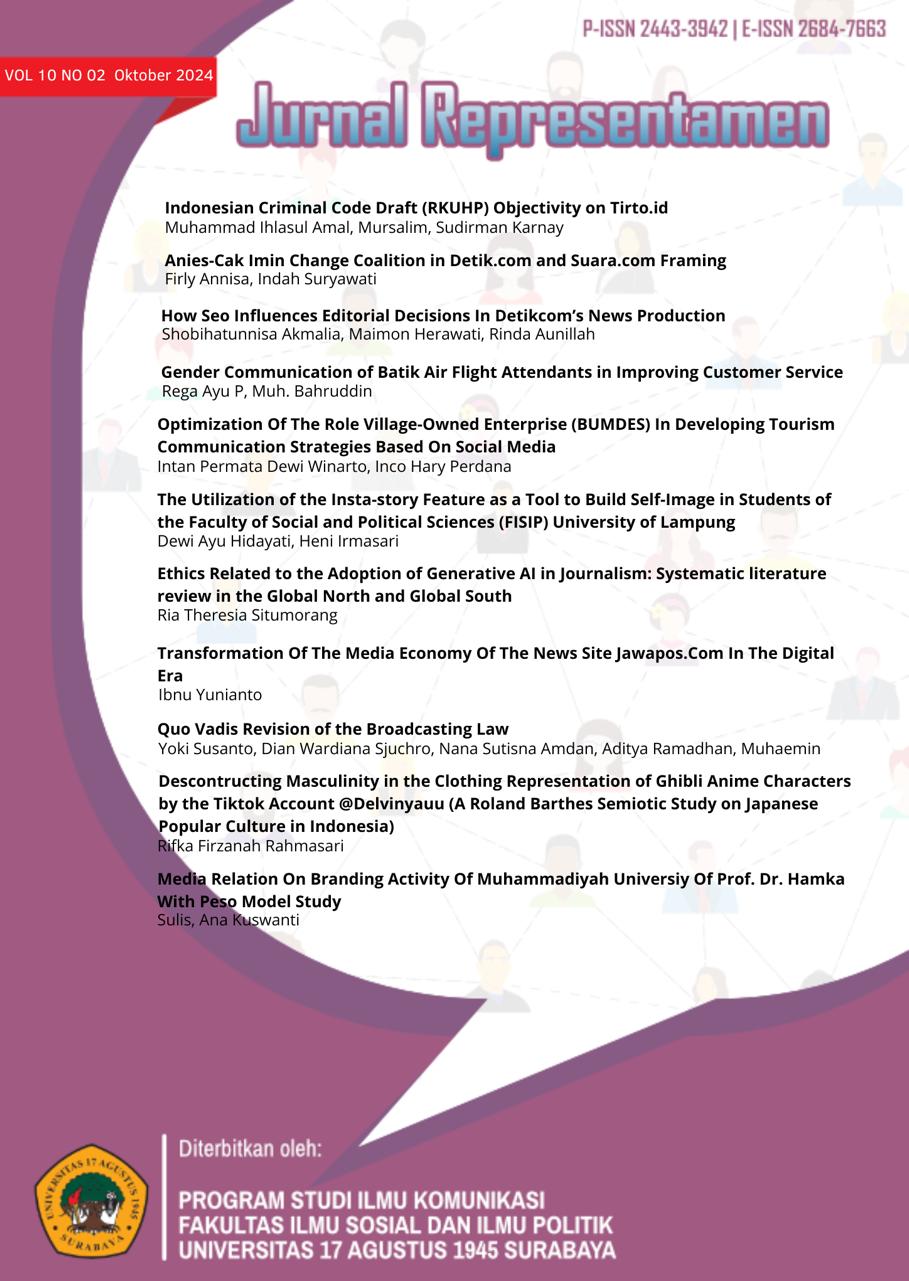Deconstructing Masculinity in the Clothing Representation of Ghibli Anime Characters by the TikTok Account @Delvinyauu (A Roland Barthes Semiotic Study on Japanese Popular Culture in Indonesia)
(A Roland Barthes Semiotic Study on Japanese Popular Culture in Indonesia)
DOI:
https://doi.org/10.30996/representamen.v10i02.12016Abstract
This research explores the representation of masculinity in TikTok content by the creator @Delvinyauu, focusing on the portrayal of characters from Studio Ghibli films. It investigates how these representations challenge traditional masculine stereotypes in Japanese culture, particularly through the lens of soft masculinity. Utilizing a descriptive qualitative method combined with Roland Barthes' semiotic analysis, the study analyzes the denotative and connotative meanings behind fashion choices, body language, and character portrayals. Results indicate that the creator's content resonates with audiences, showcasing a softer, empathetic masculinity that diverges from conventional ideals. This shift promotes a more nuanced understanding of masculinity, encouraging emotional expression and individuality in contemporary society. The study concludes that TikTok serves as a platform for redefining masculine identity, as it reflects the evolving perceptions of gender roles among youth in Indonesia.
Downloads
Downloads
Published
Issue
Section
License
Authors whose manuscript is published will approve the following provisions:
The right to publication of all journal material published on the jurnal representamen website is held by the editorial board with the author's knowledge (moral rights remain the property of the author).
The formal legal provisions for access to digital articles of this electronic journal are subject to the terms of the Creative Commons Attribution-ShareAlike (CC BY-SA) license, which means Jurnal Representamen reserves the right to store, modify the format, administer in database, maintain and publish articles without requesting permission from the Author as long as it keeps the Author's name as the owner of Copyright.
Printed and electronic published manuscripts are open access for educational, research and library purposes. In addition to these objectives, the editorial board shall not be liable for violations of copyright law.











